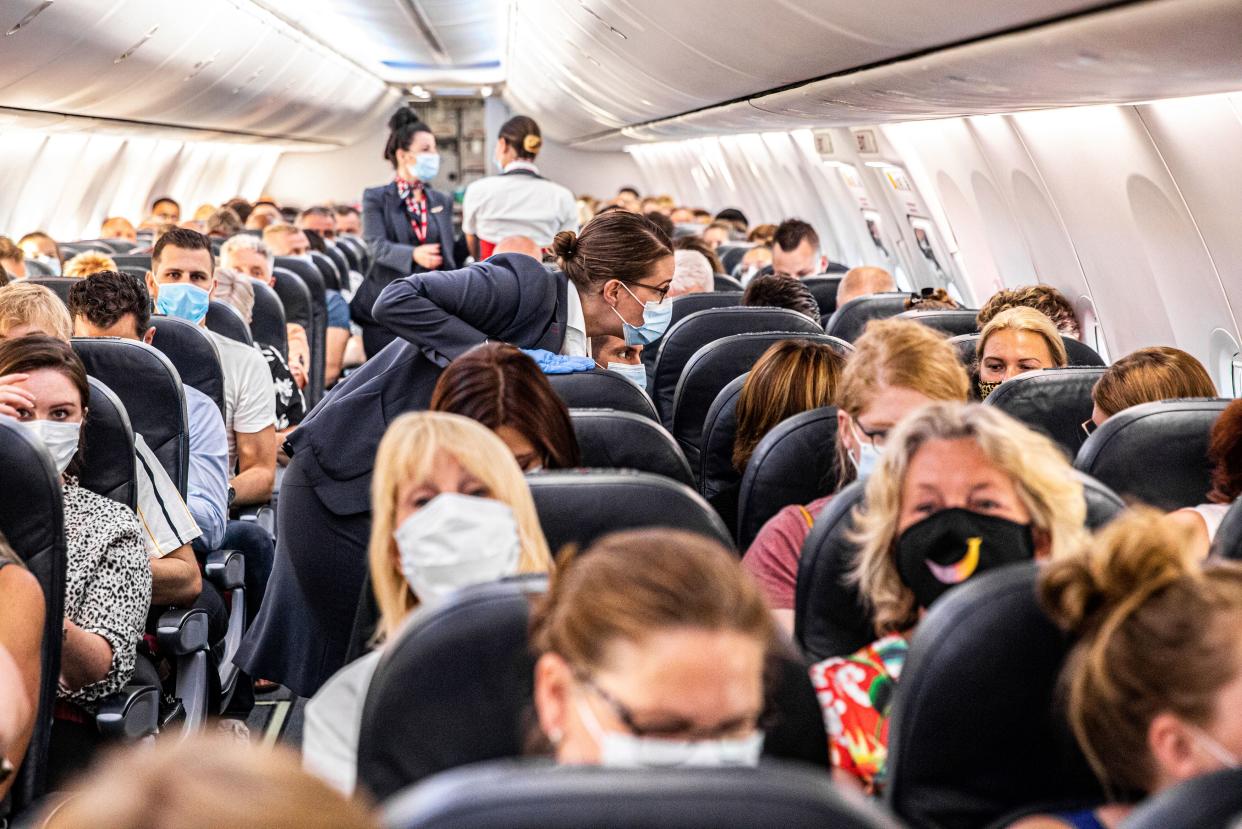Coronavirus: Non-essential travel restrictions ease on 6 July

Restrictions on non-essential foreign travel will be eased from 6 July, allowing Brits to holiday abroad this summer.
The government announcement will be welcomed by the struggling airline industry, which has been on the brink of collapse since flights were grounded in March.
The International Air Transport Association (IATA) said airlines are expected to lose $84.3bn (£101.91bn) in 2020 for a net profit margin of -20.1%. It also expects revenues will fall 50% to $419bn, from $838bn in 2019. In 2021, losses are expected to be cut to $15.8bn as revenues rise to $598bn.
Travellers are expected to be allowed to travel to certain European countries without having to spend 14 days in quarantine when they return. These are most likely to include Spain, France, Greece, Italy, the Netherlands, Finland, Belgium, Turkey, Germany and Norway - but not Portugal or Sweden.
The full list of "air bridges" will be published next week.
A traffic light system will be introduced — with countries classified as green, amber and red depending on the prevalence of COVID-19.
READ MORE: German and Dutch governments put up billions to save airlines
UK holidaymakers will still have to present the address they plan to stay at on their return from abroad, and they will be legally required to wear face masks on planes and ferries.
Airlines have slammed the government's rigid 14-day quarantine rule for anyone entering the UK, claiming it is exacerbating pressure on the industry, leading to greater job losses.
Last week, Irish airline Aer Lingus (IAG.L), owned by British Airways parent IAG, announced its plans to axe 500 jobs, citing the quarantine as a mitigating factor. Meanwhile British Airways, EasyJet (EZJ.L), and Ryanair (RYA.L) launched legal action against the UK government’s travel quarantine measures, arguing that the rules would have a detrimental impact on the country’s tourism sector.
Travel industry group ABTA described the relaxation of quarantine rules as "encouraging" and said confirmation of travel corridor countries "should encourage customers to book."


